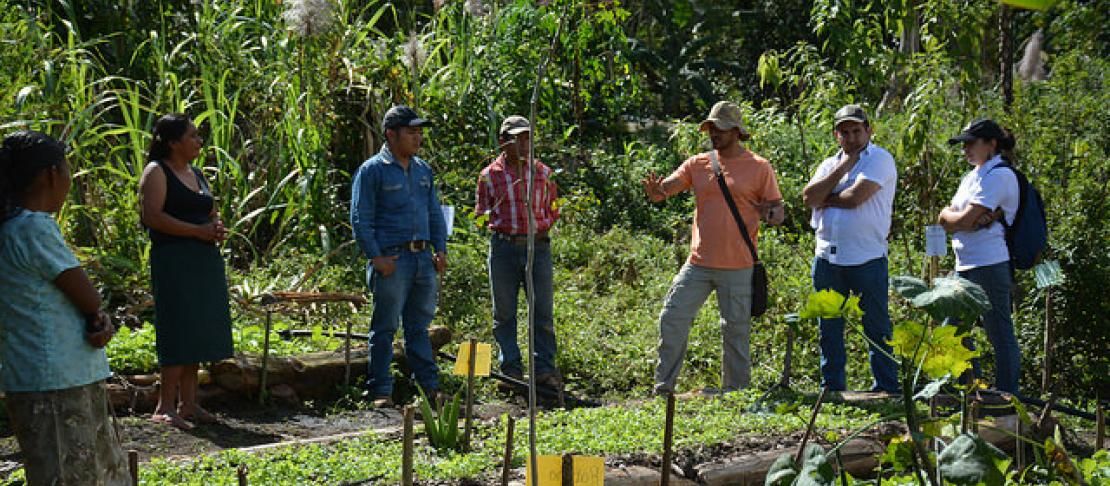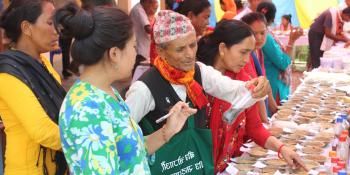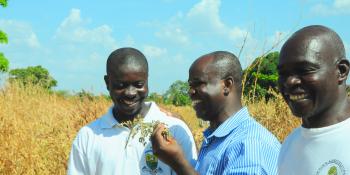Keeping it cool: mitigation through adaptation and the role of small farmers fighting a warmer world

When social networks matter, adaptation can provide mitigation benefits within CSA.
Climate-smart agriculture (CSA) needs to go big. While there is a lot of talk about developing CSA practices and studying their advantages, the problem of large-scale adoption remains, from farmer to national level. Practices that help small farmers adapt to and mitigate climate change according to their local context need to flow across boundaries and levels for steady progress towards climate goals and sustainability.
This challenge is one reason why what happens within and across communities matters. A new study led by CCAFS Latin America looks at how much research focuses on social networks and their role in supporting CSA uptake across scales. The short answer? Not enough.
We cannot discount social fabric when building momentum for CSA. Social capital is not a tangible thing: born out of individuals and institutions connecting with each other and within their own networks, it is something that ultimately allows people to access resources, whether physical or knowledge-based. The study stresses the key role of social networks in increasing implementation of CSA and in taking the necessary measures to limit global average temperature increases to 1.5°C. It also looks at the co-benefits of adaptation to and mitigation of climate change, and examines what influences the uptake of adaptation methods, as “adaptation becomes the entry point to implement practices that can have benefits of both adaptation and mitigation”.
Mitigation might be a hard sell for farmers compared to adaptation practices. The latter attract farmers with their clear impact in the short term, while the benefits of the former can be harder to see up-front and are realized over a longer timeframe. But adaptation practices can also support mitigation effects – agroforestry or crop-livestock systems have carbon sequestration abilities that can help reduce the carbon footprint from food production.
More research needs to focus on how social networks and social capital can be harnessed to speed up adoption and use of CSA practices that provide advantages on both the adaptation and mitigation fronts, according to experts. People listen to other people more than to theory – and if we need adaptation and mitigation fast to limit global warming to 1.5°C, then we need the fastest way for adopting these measures. Social networks could help to speed up the process.
Development practitioners and institutions need first to look closely at the social interactions within communities, and between these and institutions, as information and action can fluctuate with the flow of these interactions. In villages people get information from one another, they advise each other and they can learn together. But institutions, NGOs and governments can also facilitate communication and engage formal and informal stakeholders, building awareness around CSA practices.
Who enables quick CSA implementation across scales? Between individuals and institutions, what kind of interactions and which components of social dynamics are the crucial enablers? The research community concerned with CSA should focus more formally on these questions. While experts agree that social dynamics can encourage climate change interventions by facilitating the adoption of new adaptation and mitigation technologies, the enabling mechanisms remain under-documented. Specifically, more research is needed on the mechanisms that allow communities and nations to maximize adaptation and mitigation together.
Another important question is how much and what can small farmers do to mitigate climate change? Food security requires increased agricultural production that comes with higher emissions, with a large proportion of the sector represented by small farmers. The research agenda should also prioritize finding out the answer; this will clarify the part farmers can play in mitigation and how best they can be included in processes across scales.
The study is a collaboration between the CGIAR Research Program on Climate Change, Agriculture and Food Security (CCAFS), the International Center for Tropical Agriculture (CIAT), the University of Cundinamarca and the University del Valle, Colombia.
Read more:
Alexandra Popescu is the communication officer for CCAFS Latin America.



